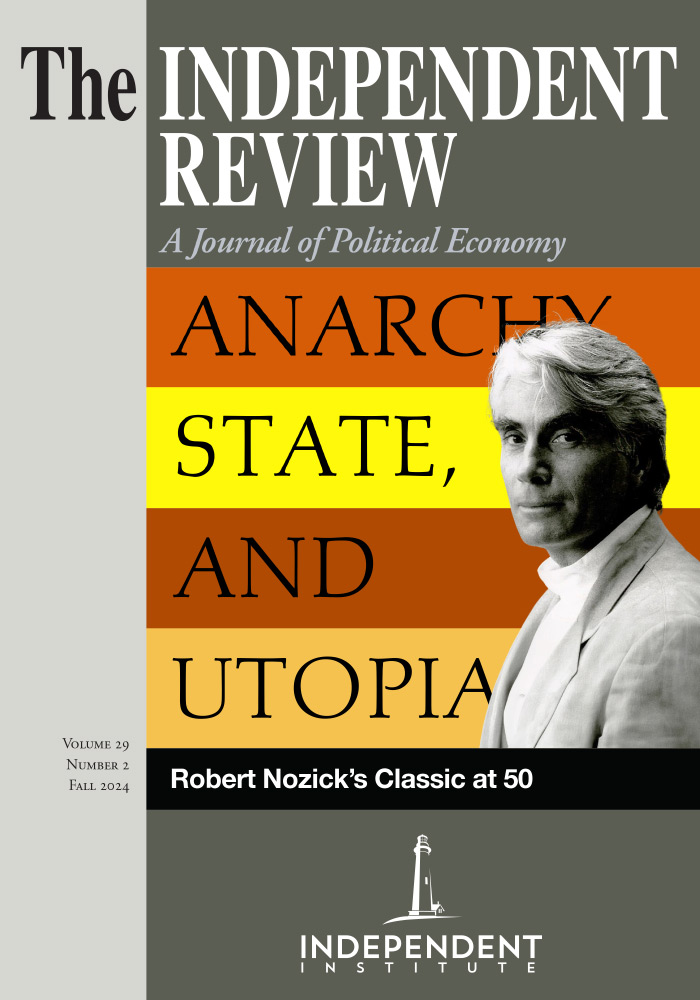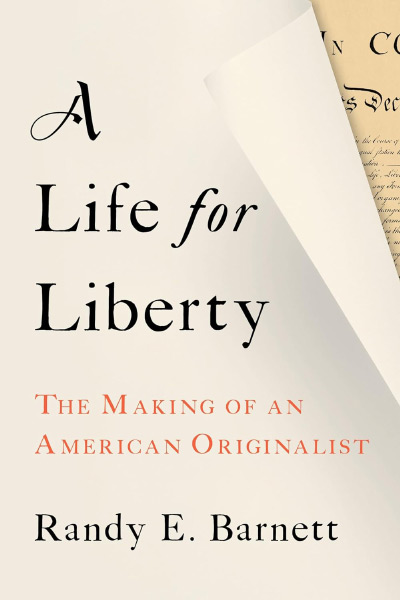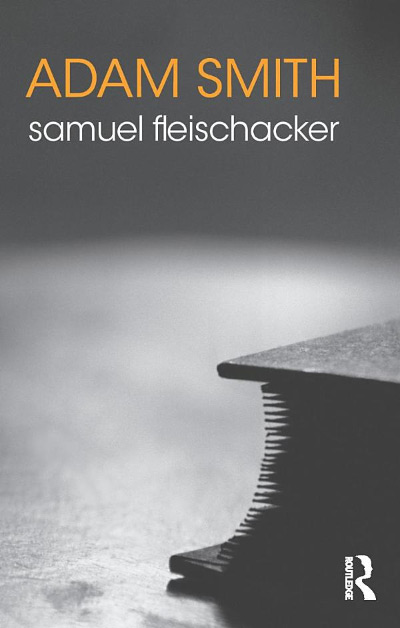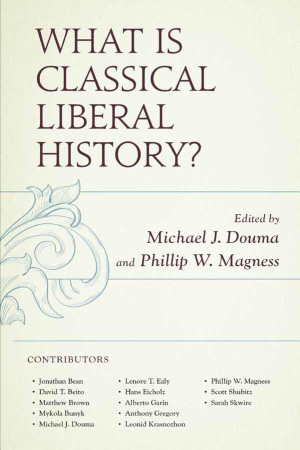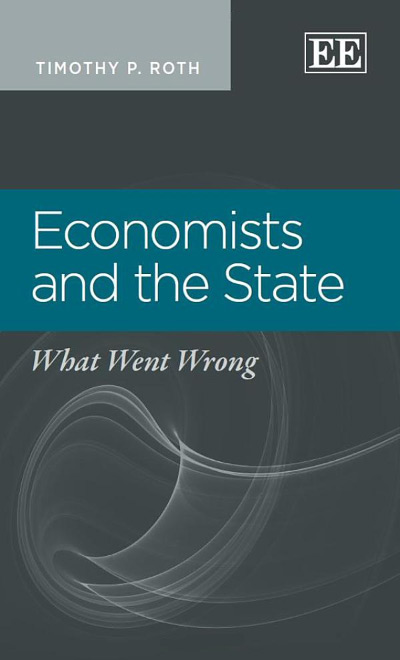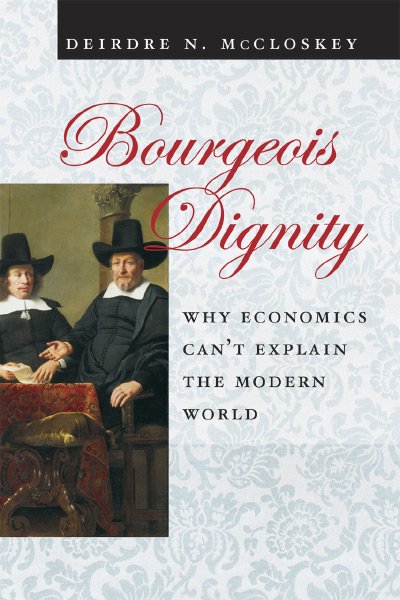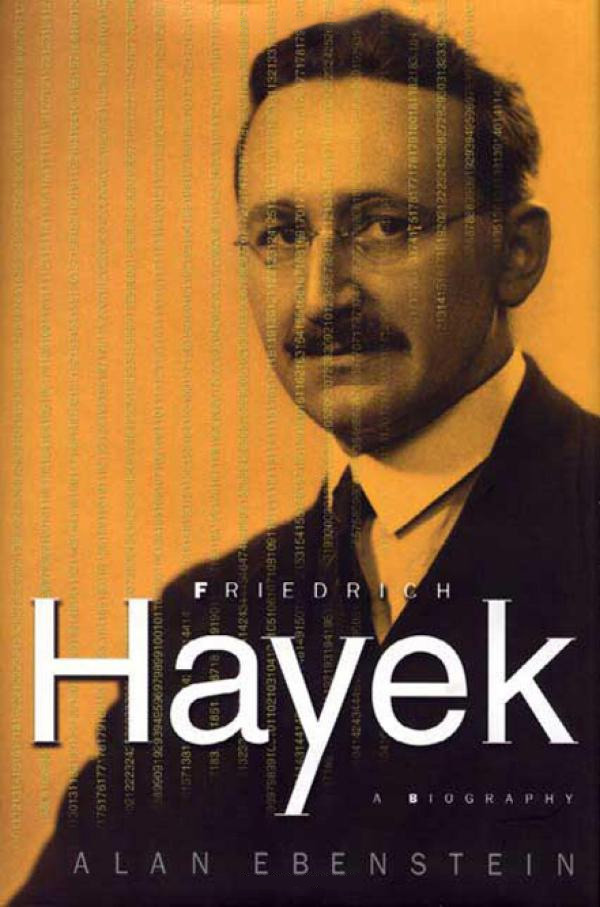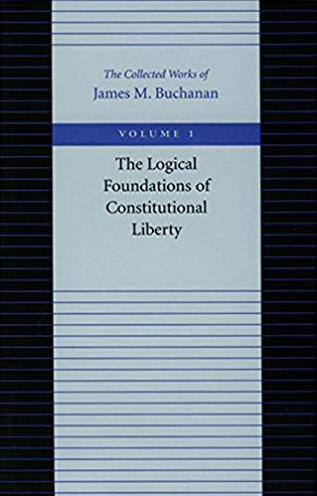Most of us only know Randy Barnett through his scholarship—quality books and articles on the Constitution. In those works, we meet arguments and ideas presented by a libertarian law professor. A Life for Liberty, however, provides a glimpse into who Randy Barnett is and traces his journey from middle America to the heights of the legal academy.
With roots in the South Side of Chicago, Barnett grew up in Calumet City, Illinois, in a working-class home. His father owned and operated a retail launderette in Chicago but chose to live in the suburbs to enhance the quality of life for the family. Ronald Barnett was no-nonsense man who worked long hours, yet still made time to love his wife and children and to participate in their lives. Barnett’s bond with his father appears throughout the book.
Barnett entertains readers with stories from participating in the high school debate team, playing in a rock and roll band, starting a school newspaper, and serving as student council president. Although such activities paint Barnett as a popular and successful student, he confesses that he always considered himself an outsider. Throughout the book it is painfully obvious that he has carried a chip on his shoulder throughout life, even as he reached the height of his profession.
Neither the book nor Barnett himself appear to have come to terms with this mindset. Certainly, part of it stems from growing up Jewish in Protestant middle America. However, Barnett recounts only one episode from school in which he was called “a dirty Jew” and fought a student because of the insult. One senses lamentation that he never reveled in school successes (i.e., student council president) but instead was determined to always view himself as a stranger.
After high school, Barnett attended Northwestern for undergraduate and Harvard for law school. For most of his high school career Barnett’s greatest academic aspiration was to attend the University of Illinois at Champaign-Urbana. High school students with a certain GPA and ACT were automatically admitted without having to take the SAT and Barnett easily met the mark. On a whim he took the SAT just to see how he would do. When Barnett aced the SAT his guidance counselor suggested that he look at Northwestern. Barnett had never heard of Northwestern and did not realize that this elite school was not far from Chicago. He applied, received a scholarship, and was off to Evanston, Illinois. Barnett became the first member of his family to graduate from college.
At Northwestern friends introduced Barnett to libertarianism, which he found to be “a developed and comprehensive theory with defined applications to real life” (p. 219). Up to this point, Barnett had considered himself a conservative. No more after Northwestern. He was a convert to libertarianism, and in his senior year organized a for-credit seminar on libertarianism that featured books by Murray Rothbard, David Friedman, and others.
At Northwestern, Barnett decided that he wanted to be a criminal trial attorney and work in Chicago. To get into law school one must take the LSAT. Barnett did no test preparation and winged it. He scored in the ninety-ninth percentile. With a stellar result on the test Barnett applied to and was accepted at Harvard. The young college graduate had the idea that a trip to the east coast could broaden his horizons before returning to spend life in Chicago.
Barnett confesses that he was not a great law student. He spent much of his time traveling to New York City to particulate in the Center for Libertarian Studies. There he met Murray Rothbard and formed connections that would lead him into the orbit of other libertarian thinkers such as Richard Epstein.
He did not seek a position with a white-shoe law firm, but instead pursued his dream of being a criminal trial lawyer. Fresh out of Harvard, Barnett became a Cook County state’s attorney. There he got to try multiple cases and hone his skills in the courtroom. Unlike many law professors today, Barnett actually practiced law and tried cases.
By the end of law school Barnett knew he wanted to join the ranks of academia and that Cook County would be a temporary stop. However, he faced an obstacle since he had often focused more on the Center for Libertarian Studies than his grades. Barnett received a boost when Richard Epstein agreed to sponsor him as a research fellow at the University of Chicago School of Law. This helped Barnett overcome questions about his Harvard class rank and the decision to become a lowly state prosecutor—neither of which screamed “successful future academic.”
The fellowship helped Barnett land a position at the Chicago-Kent College of Law. Rather than savor his hiring at Chicago-Kent, Barnett resolved to publish articles in hopes of finding a job at a more prestigious school. He is candid about this desire for a promotion: “I wanted the acceptance by the in-crowd that is the top echelon of law professors” (p. 372). Once again, we see Barnett’s outsider complex push him to strive harder.
Of course, Barnett did arrive at the top echelon. He advanced to Boston University and then Georgetown. Along the way he wrote important books such as The Structure of Liberty: Justice and the Rule of Law (New York: Oxford University Press, 2000) and Restoring the Lost Constitution: The Presumption of Liberty (Princeton, N.J.: Princeton University Press, 2004). Just twenty years ago, he argued Gonzalez v. Raich (2005) before the U.S. Supreme Court in which he urged a more reasonable and limited reading of the Commerce Clause. Barnett’s position garnered only three votes. But because of his expertise in Commerce Clause issues, he was on the legal team that challenged the Obamacare individual mandate. They won the Commerce Clause issue, but Chief Justice Roberts succumbed to political pressures to uphold the statute based on the taxing power.
Barnett’s writings and advocacy have undoubtedly improved Commerce Clause jurisprudence, although the commerce power remains light years from the intent of the Framers and ratifiers. Unfortunately, some of his comments on his successes reek of braggadocio. For example, Barnett makes remarks describing himself as an “A-list law professor” and states that but for Georgetown’s wisdom in hiring him “I would not be where I am today. And neither would the Constitution” (p. 597). He also points out that he is the only law professor he knows with a published memoir. My initial reaction is that a gentleman would not make such boasts. But perhaps Barnett is of the same school as the Hall of Fame pitcher Dizzy Dean who quipped, “It ain’t bragging if you can do it.” Fair enough.
Some of the most interesting parts of the book come from the Afterword. Although a libertarian and one who is not a fan of Murray Rothbard’s efforts to bring paleoconservatives and libertarians under one big tent, Barnett shows that he can reject libertarian dogma such as open borders. Barnett writes: “In a world of competing nation-states in which some polities are much freer and more rights-respecting than others, libertarians need to think harder about the potential ill effects of unregulated immigration of persons beyond the capacity of American society to assimilate them as my ancestors were assimilated” (p. 604). He suggests that “the freedom of movement between countries require[s] laws to preserve what makes a polity worth moving to” (p. 605).
A Life for Liberty is the story of Randy Barnett. It is entertaining and insightful. If a reader desires legal theory, he should turn to one of Barnett’s many books or articles. However, if the reader wants a glimpse of what makes Randy Barnett tick, this book is recommended.
| Other Independent Review articles by William J. Watkins, Jr. | ||
| Winter 2023/24 | How to Interpret the Constitution | |
| Fall 2021 | Chaining Down Leviathan: The American Dream of Self-Government, 1776–1865 | |
| Summer 2021 | The Constituent Power as a Remedy for the Administrative State | |
| [View All (9)] | ||

